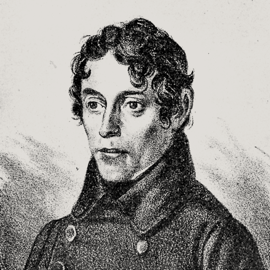Placyd Jankowski

Placyd Jankowski (1810-1872) was a priest (Uniate, and then Orthodox), a lecturer, a writer and one of the first translators of Shakespeare into Polish. His life was bound up with the multicultural easternmost region known as the Kresy (Borderlands), and in particular Żyrowice (today: Zhyrovichy) in the former district of Nowogródek (today: Navahrudak), where he lived from 1833. He studied at the Vilnius University Seminary affiliated with the Church of the Holy Trinity. He completed his doctorate in Vilnius. In 1839, Jankowski supported the disestablishment of the Uniate Church and its incorporation into the Russian Orthodox Church, a position that was taken as a gesture of apostasy and led later critics to dismiss him as a marginal figure. He produced Gothic novels and humorous tales, and translated from English, Italian and German. Over many years he had a warm friendship with Ignacy Hołowiński and Józef Ignacy Kraszewski.
Jankowski published his own literary work and his translations under the pseudonym of John of Dycalp. He translated four of Shakespeare’s plays: The Merry Wives of Windsor (Puste kobiety z Windsoru, 1842), Twelfth Night (Północna godzina, 1845) and both parts of Henry IV (Henryk IV, 1847). All Jankowski’s work appeared in Vilnius and belongs to the first wave of Shakespeare translations working from the original text. He translated the plays into unrhymed, 11-syllable lines, observing the division between verse and prose. For the comic scenes he sought out dynamic equivalents for the jokes, drawing freely on a pool of Polish expressions and cultural references. The translations are annotated to support the reader where difficulties arise. He took care over the dynamics and the intelligibility of the dialogue, at the expense of minor semantic compromises.
Jankowski’s translations were well received in the eastern borderlands, and quite severely criticised in the Warsaw press. Some of the charges stemmed in part from the selection of plays, which were seen as unrepresentative of Shakespeare, in spite of the fact that Falstaff appears in three of them. Broadly, Jankowski’s talent in rendering the comic scenes was appreciated, though he was criticised for taking liberties and making linguistic mistakes, and sometimes also for being insufficiently familiar with the original. Only one of the translations (Henry IV Part 2/ Henryk IV Część 2) was reissued in a collected edition (1895). None were staged.

Bibliography of translations
Szekspir [William Shakespeare], Puste kobiety z Windsoru [Wesołe kumoszki z Windsoru], tłum. John of Dycalp [Placyd Jankowski], nakł. i dr. Józefa Zawadzkiego, Wilno 1842.
Szekspir, [William Shakespeare], Północna godzina [Wieczór Trzech Króli], tłum. John of Dycalp [Placyd Jankowski], Wilno: nakł. i dr. Józefa Zawadzkiego 1845.
[William Shakespeare], Dzieła Williama Shakspeare , T. 3, tłum. John of Dycalp [Placyd Jankowski], Wilno: nakład i druk T. Glücksberga 1847 [Henryk IV, część pierwsza i druga].
[William Shakespeare], Henryk IV, Część druga , tłum. Placyd Jankowski [w:] Henryk Biegeleisen (red.), Dzieła Williama Szekspira , T. 3, Dramaty królewskie, Księgarnia Polska, Lwów 1895, s. 265–370.
